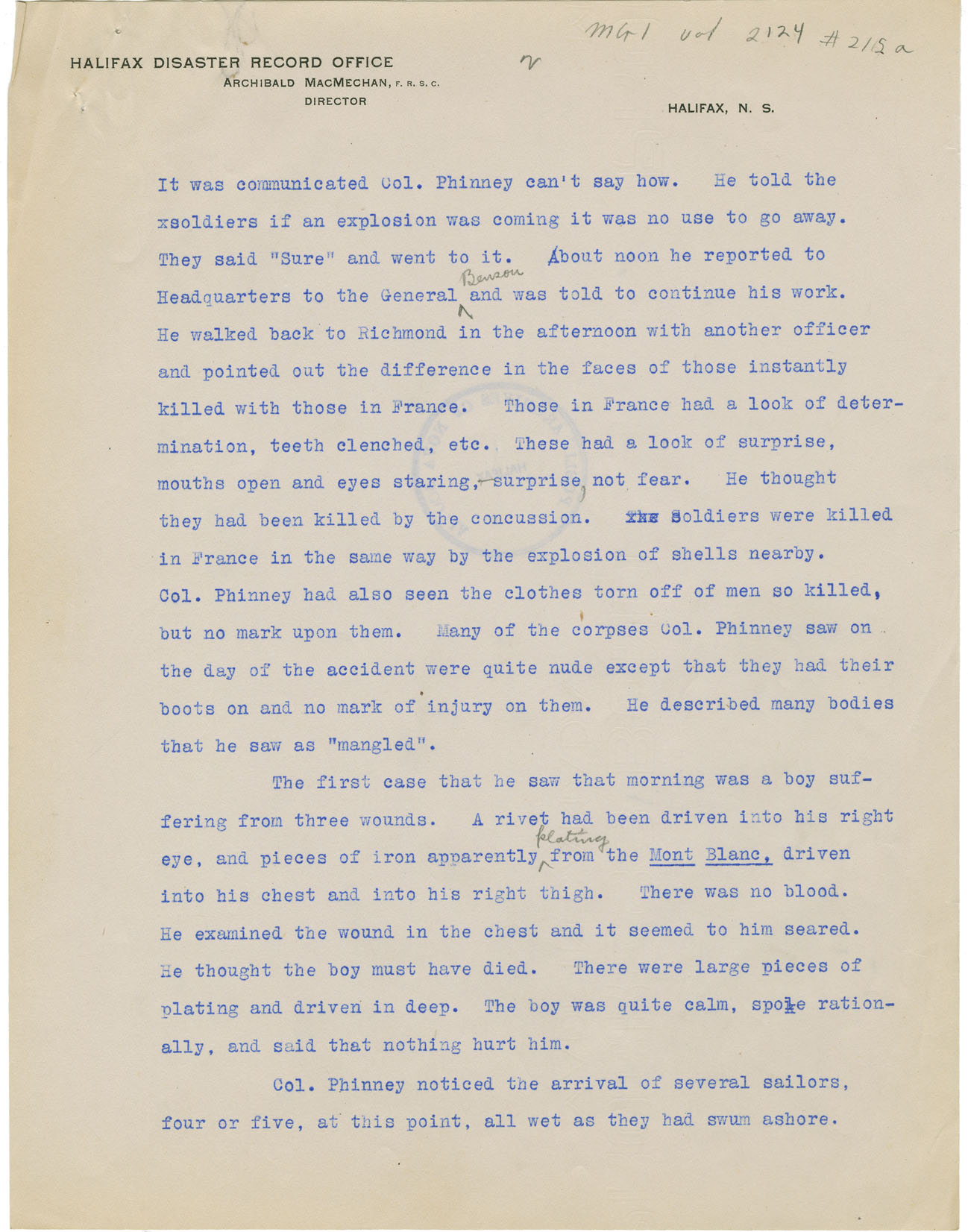Nova Scotia Archives
Archibald MacMechan
Halifax Disaster Record Office Materials
Personal narrative - Col. Phinney
25 June 1918. — 2 pages : 30 x 39 cm.
note: transcription publicly contributed - please contact us with comments, errors or omisions
MG 1 volume 2124 number 215a
HALIFAX DISASTER RECORD OFFICE
Archibald MacMechan, F.R.S.C.
Director
Halifax, N.S.
It was communicated Col. Phinney can't say how. He told the xsoldiers if an explosion was coming it was no use to go away. They said "Sure" and went to it. About noon he reported to Headquarters to the General Benson and was told to continue his work. He walked back to Richmond in the afternoon with another officer and pointed out the difference in the faces of those instantly killed with those in France. Those in France had a look of determination, teeth clenched, etc. These had a look of surprise, mouths open and eyes staring, surprise not fear. He thought they had been killed by the concussion. [xxx]Soldiers were killed in France in the same way by the explosion of shells nearby. Col. Phinney had also seen the clothes torn off of men so killed, but no mark upon them. Many of the corpses Col. Phinney saw on the day of the accident were quite nude except that they had their boots on and no mark of injury on them. He described many bodies that he saw as "mangled".
The first case that he saw that morning was a boy suffering from three wounds. A rivet had been driven into his right eye, and pieces of iron apparently plating from the Mont Blanc, driven into his chest and into his right thigh. There was no blood. He examined the wound in the chest and it seemed to him seared. He thought the boy must have died. There were large pieces of plating and driven in deep. The boy was quite calm, spoke rationally, and said that nothing hurt him.
Col. Phinney noticed the arrival of several sailors, four or five, at this point, all wet as they had swum ashore.
Reference: Archibald MacMechan Nova Scotia Archives MG 1 volume 2124 number 215

